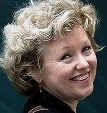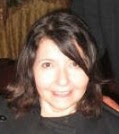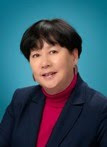In Memoriam
For Debra A. Stephens, 1956-2011
Debra Stephens, a rare and special woman, died in May 2011. She was a woman in a Sociology course that I team-taught with the director of the Center for Community Service-Learning, Chris Nayve,and a teacher from Montgomery Middle School, Emalyn Leppard, entitled Community, Consensus, and Commitment. This is a course on community organizing, and Debra was the type of student that all teachers dream about—dedicated, enthusiastic, and possessing a insatiable desire to learn.
While community organizing has historically been a successful method for bringing about social change, courses dealing with community organizing are not normally taught in the typical academic curriculum. Such courses are frequently regarded as “too political” or as “lacking academic rigor.” But this course is unique in that it is team-taught by a community member, a professional staff member from the Center for Community Service-Learning, and me. It has an expressed political purpose—to teach about the importance of civic and social engagement through the use of consensus organizing techniques. Furthermore, the class composition reflects the desire to more closely ally the university with the community. Thus the class includes USD undergraduate students and community members who would be known as “Community Scholars.” The course is free-of-charge for the Scholars, and with successful completion of the course requirements, continuing education credits can be earned. Inviting Community Scholars to the campus on a regular basis is a means of reversing the traditional university/community traffic flow. Moreover, such a traffic reversal helps break down the traditional town-gown divide by valuing the wealth of wisdom derived from the Scholars’ experiences and by recognizing that their active involvement in promoting the common good in their own community is a worthwhile and meaningful endeavor. In addition, these Scholars would be a rich resource for USD undergraduate students who were interested in community involvement to tap.
Debra was one of six Community Scholars this year. Her community project was “One Hundred Strong.” In her own words, Debra wrote about the origins of One Hundred Strong.
As described in both [Michael] Eichler [Consensus Organizing] and Obama’s [Dreams of My Father] book, grass roots organizations are usually the result of individuals and communities being “sick and tired of being sick and tired.” Those were the origins of 100 Strong, a community of individuals feeling they had the ability and desire to improve the quality of life for themselves and their neighbors. The community immediately surrounding the offices of 100 Strong included the small businesses owned by most of the founders of the organization. Their neighborhood of Southeastern San Diego is one of the lowest on the socio-economic ladder in San Diego County. It has the highest rate of unemployment and gang violence in the City of San Diego. It is in the Fourth Council District of the City and District 2 of the County. There is a shortage of grocery stores, banks, restaurants and other businesses that would typically serve a neighborhood. Many of the residents are first in line for social services, and at the bottom of the list when it comes to receiving quality services from government entities and corporations. The schools in the area have low test scores, high dropout rates and very low numbers of graduates attending post-secondary institutions. Given the less than stellar description of the community and challenges facing the people who live there, there are still many high performing individuals who have a great deal of pride in calling District 4 home, myself included. The success they have achieved is a great source of pride for the community and the type of imagery needed to shape the minds and actions of the young people watching them.
Her dedication and enthusiasm in the course was an inspiration to us all. The first to arrive, she would arrange the chairs in a circle (our preferred arrangement), and we would sit and chat before class. Debra was initially “intimidated” by the thought of taking a college-level course because she did not finish college herself. I had to laugh at the thought of anything intimidating such a force of nature. But despite her hesitation, she gave her “all” to every discussion.
The course ended with a community celebration on May 11, 2011 where the Community Scholar-led teams gave a presentation about their organizing efforts during the semester. In the audience were invited guests from the community who witnessed the dedication and passion of each group. Debra and her group of two USD students, Divina and Angie, were terrific.
Two days later, on Friday, May 13th, Debra suffered a massive stroke following a keynote speech she gave at her beloved Lincoln High School. A devoted “Lincoln Hornet,” she was a natural to give another inspirational talk. Tragically, her death has left a vibrant African American community bereft of one of its leaders. We will all miss her.
Judith Liu












